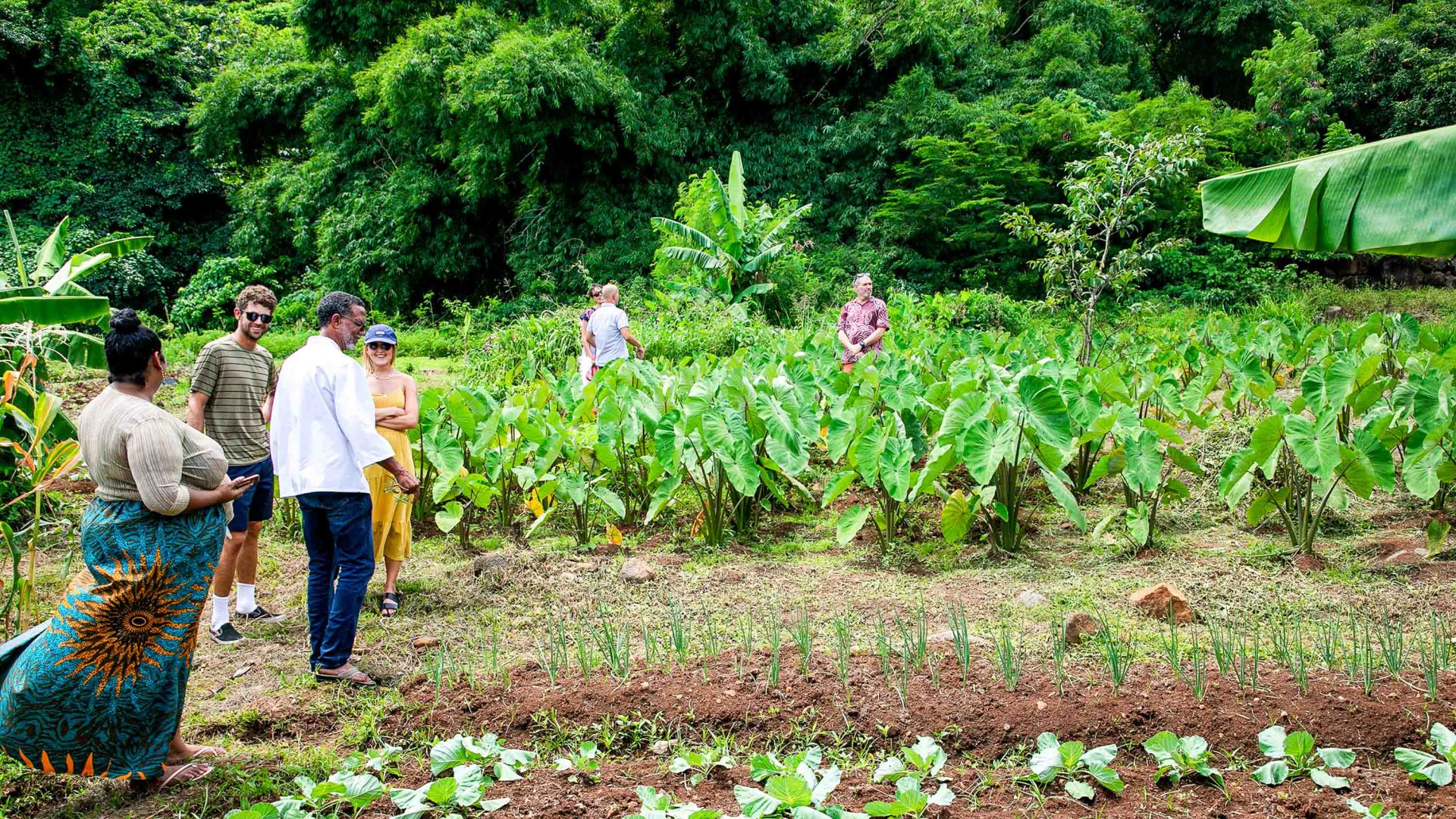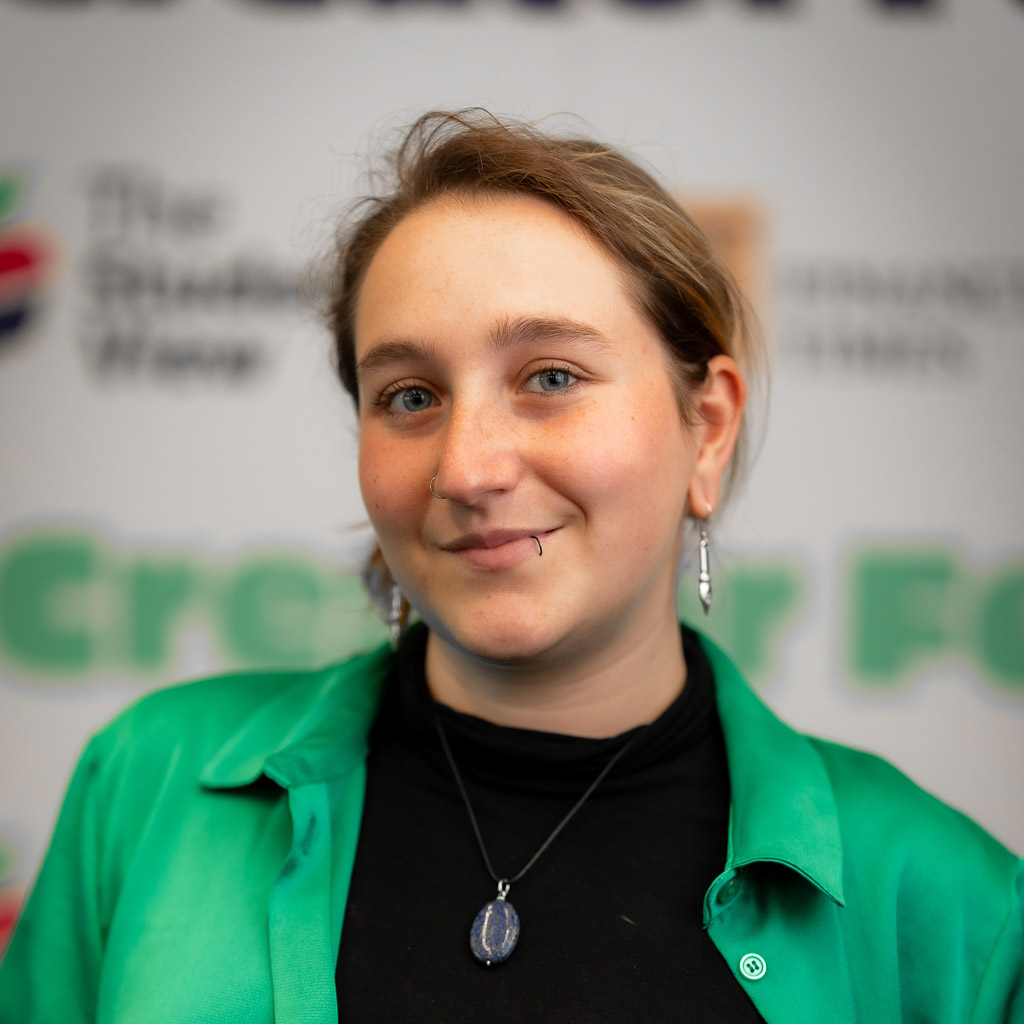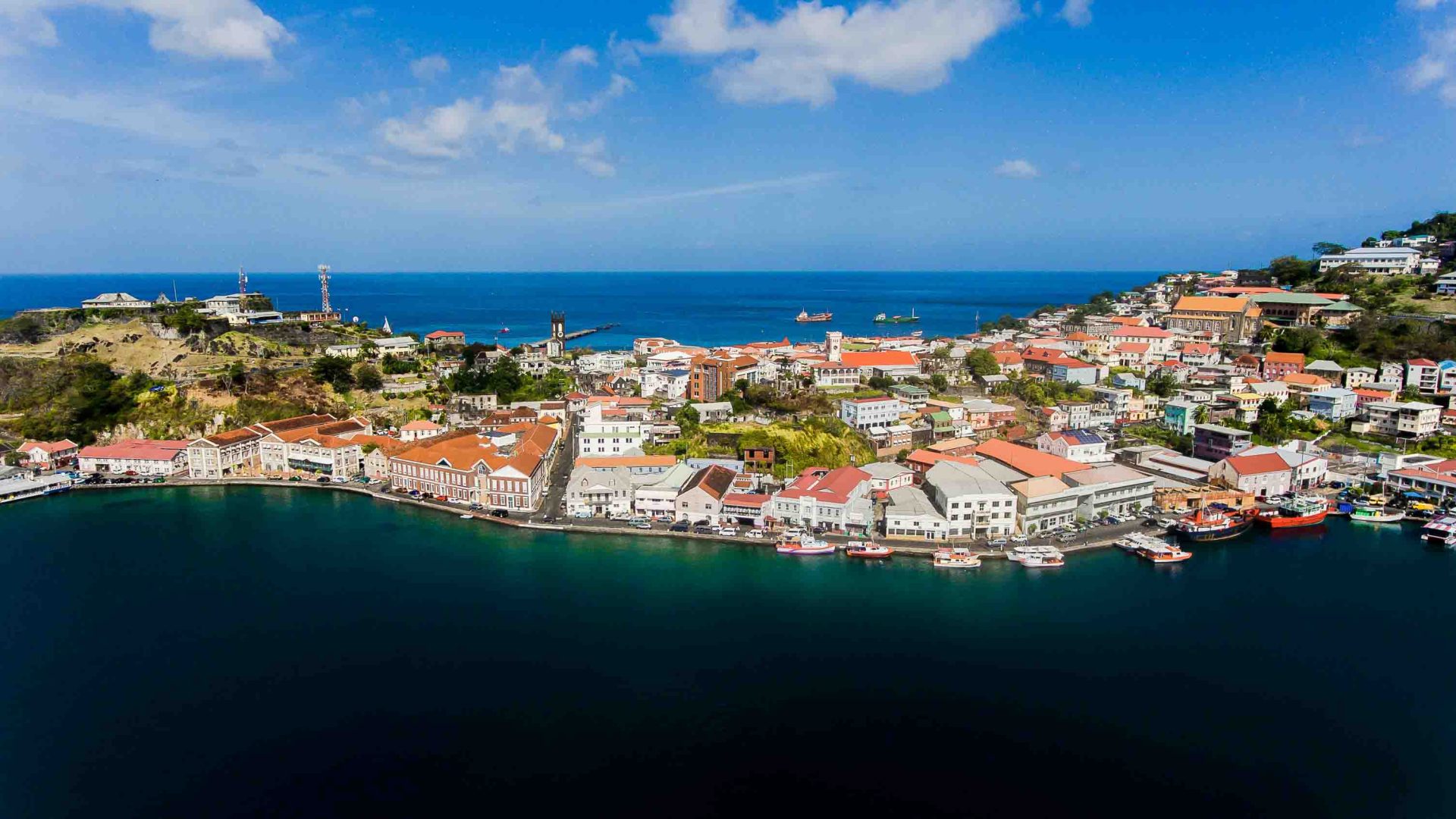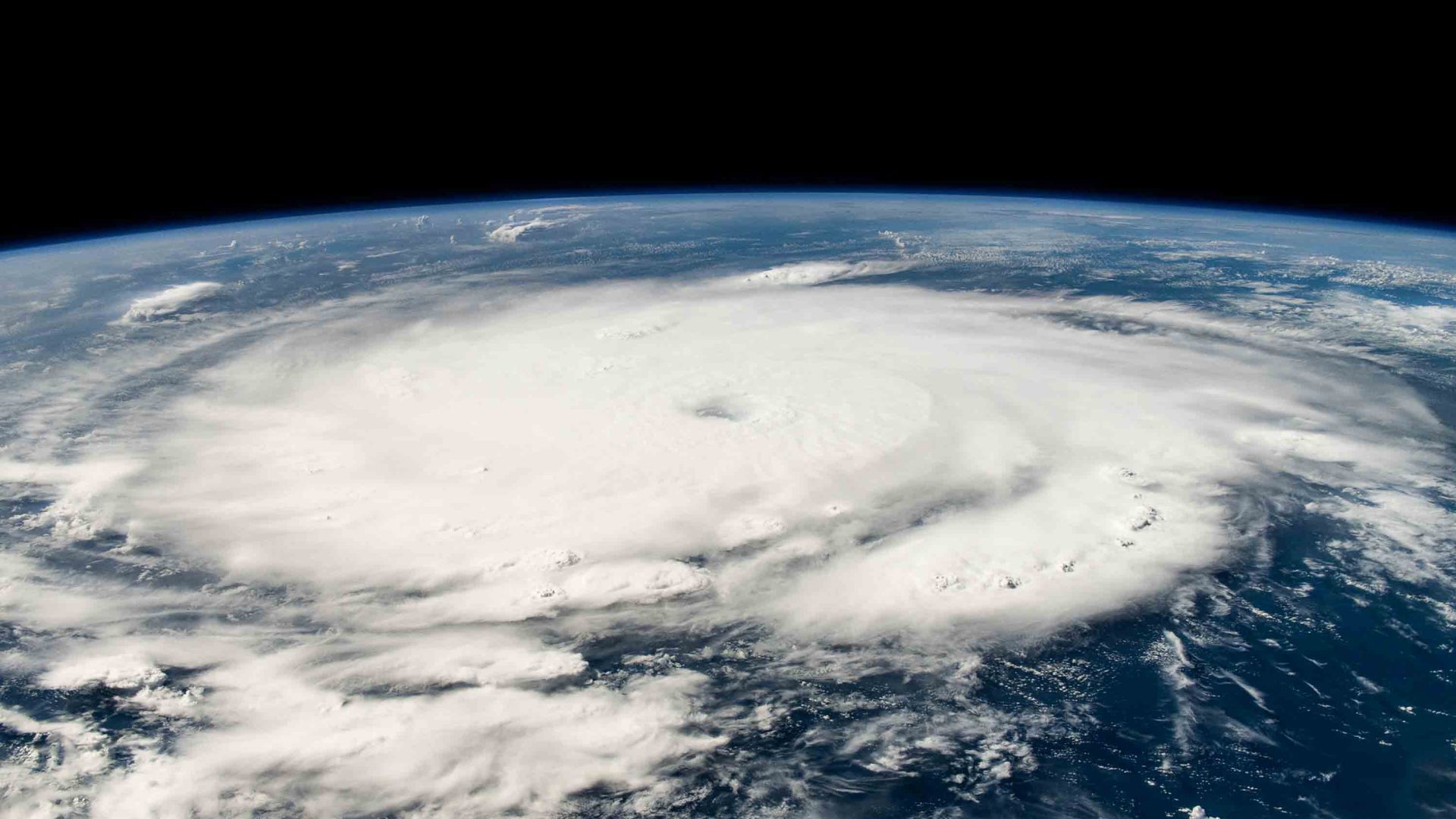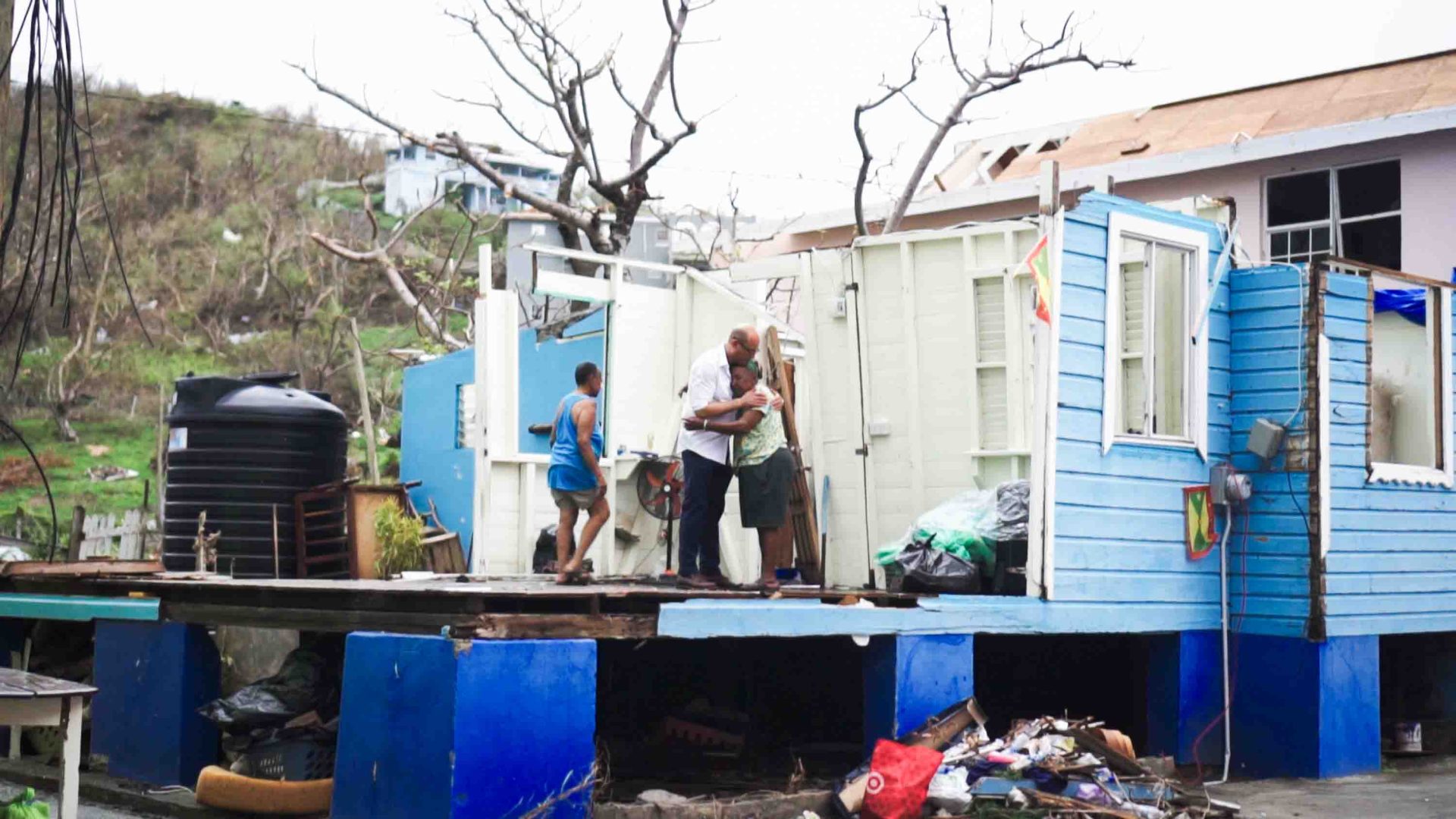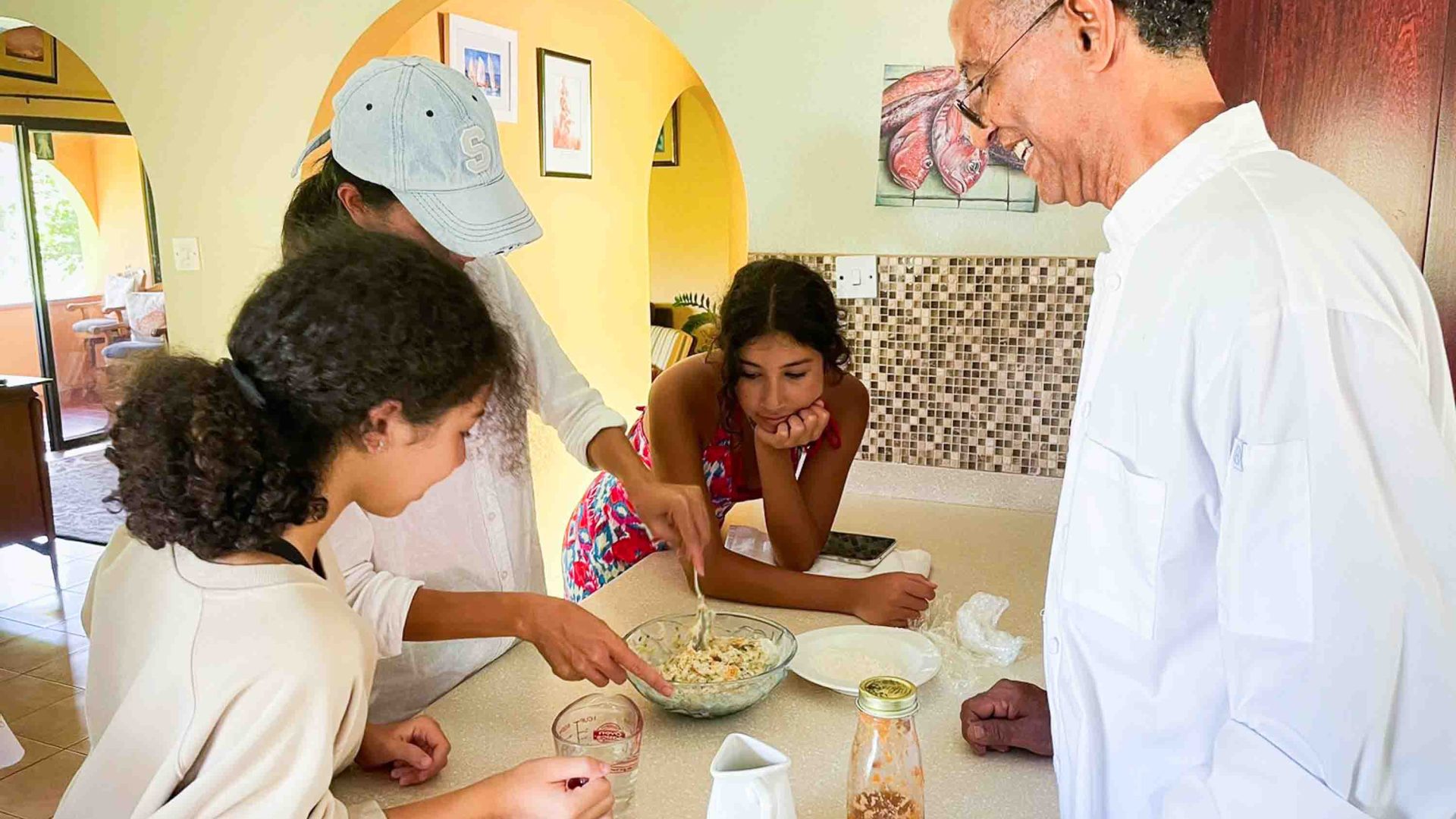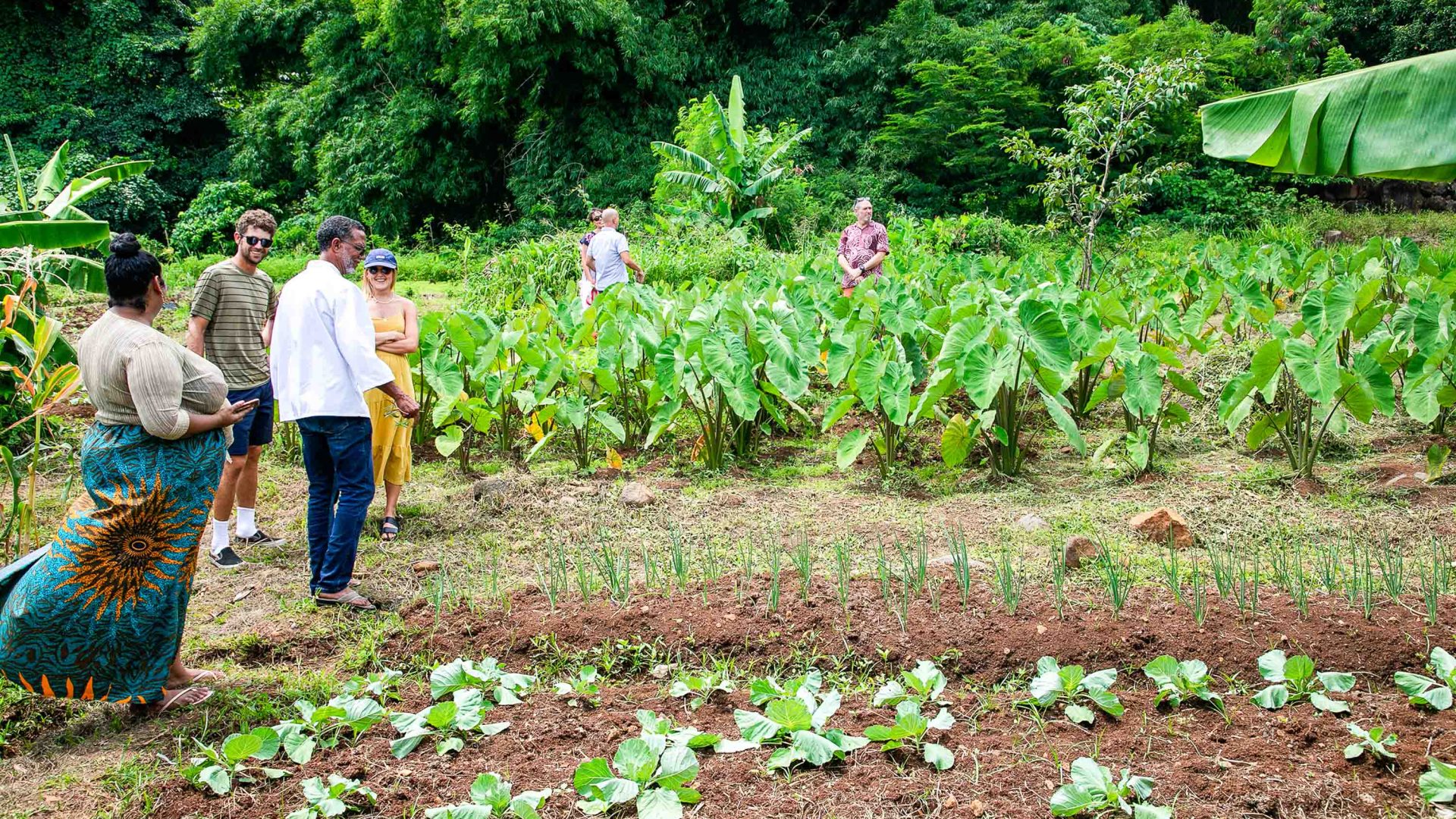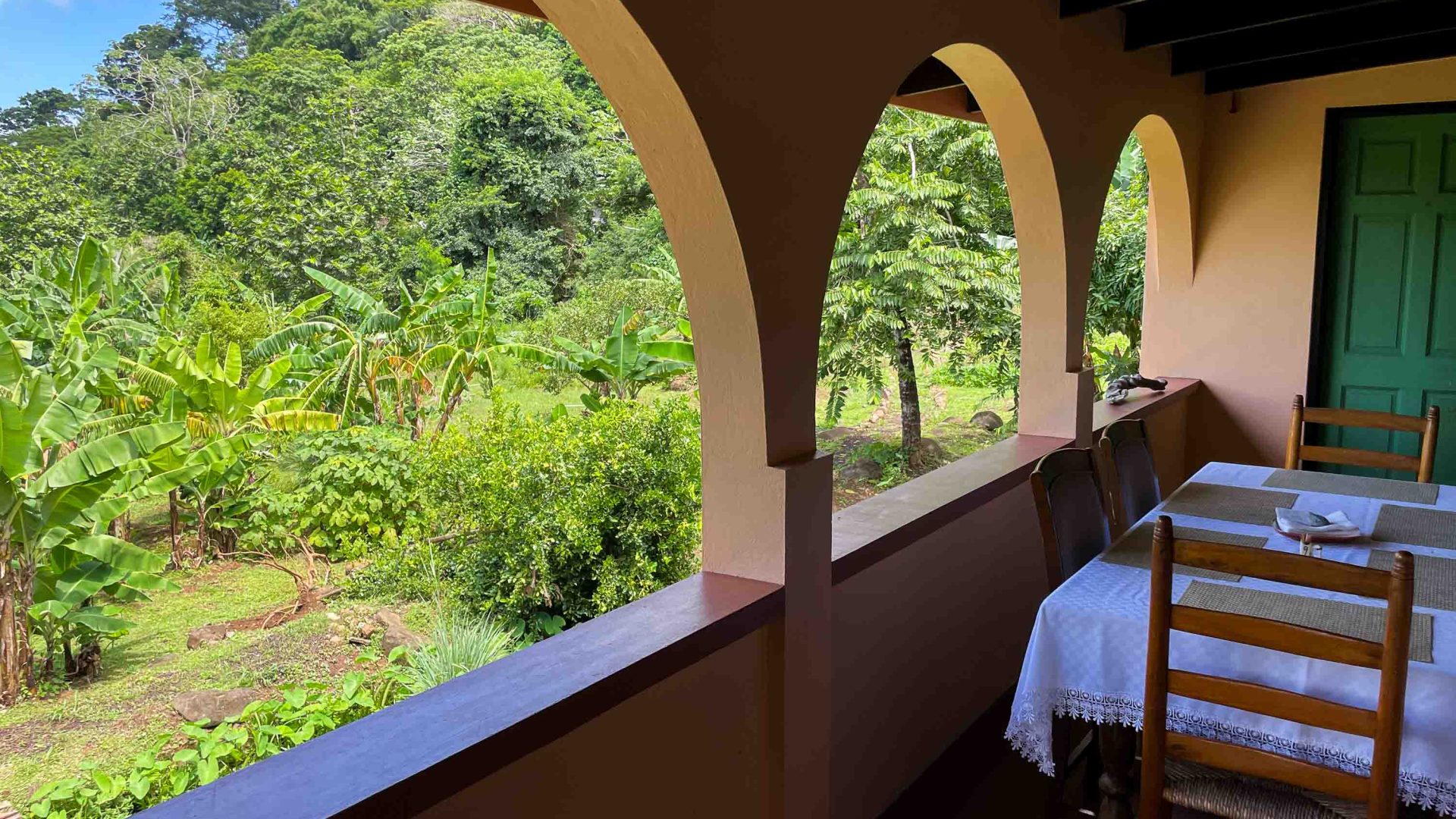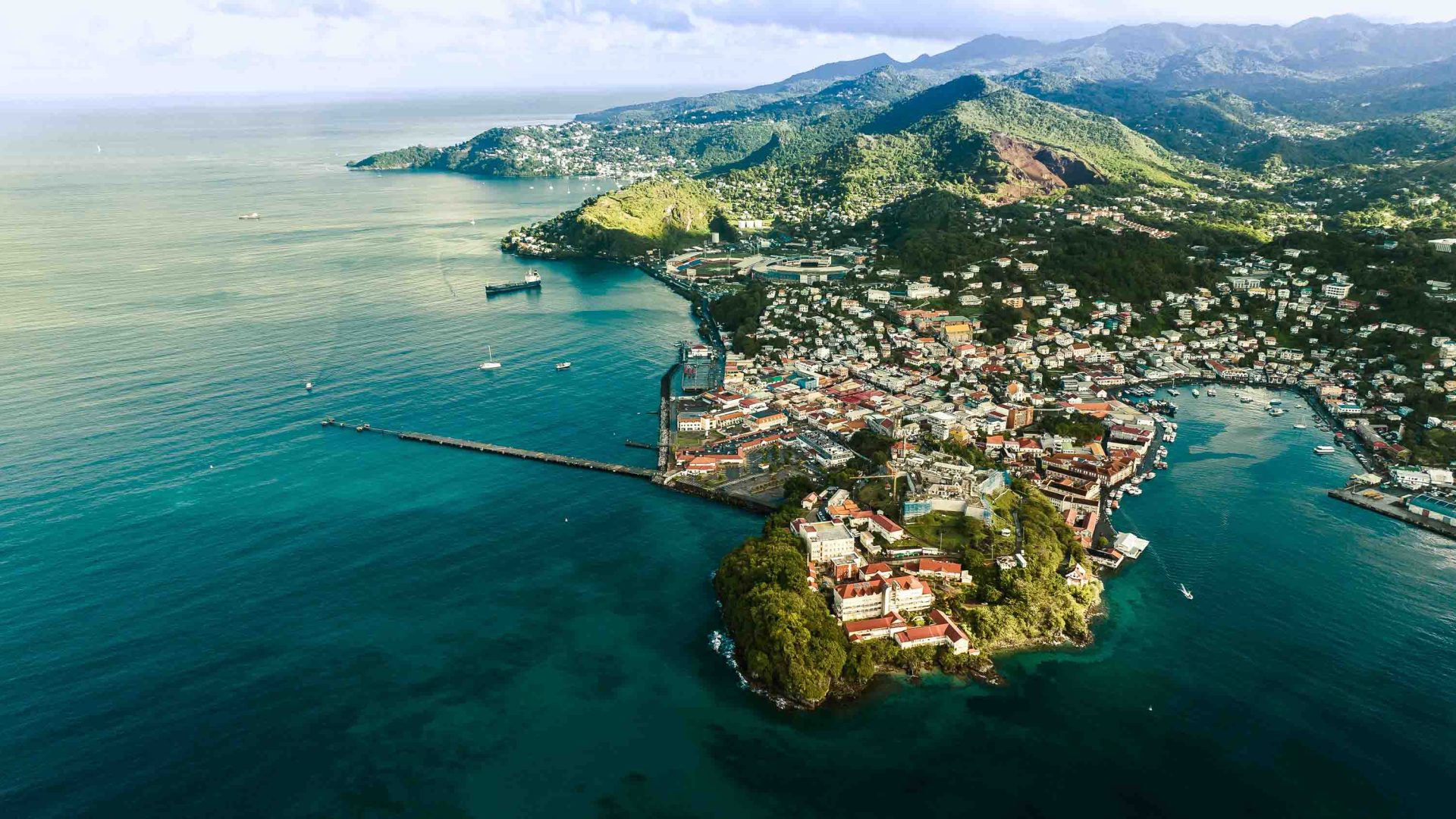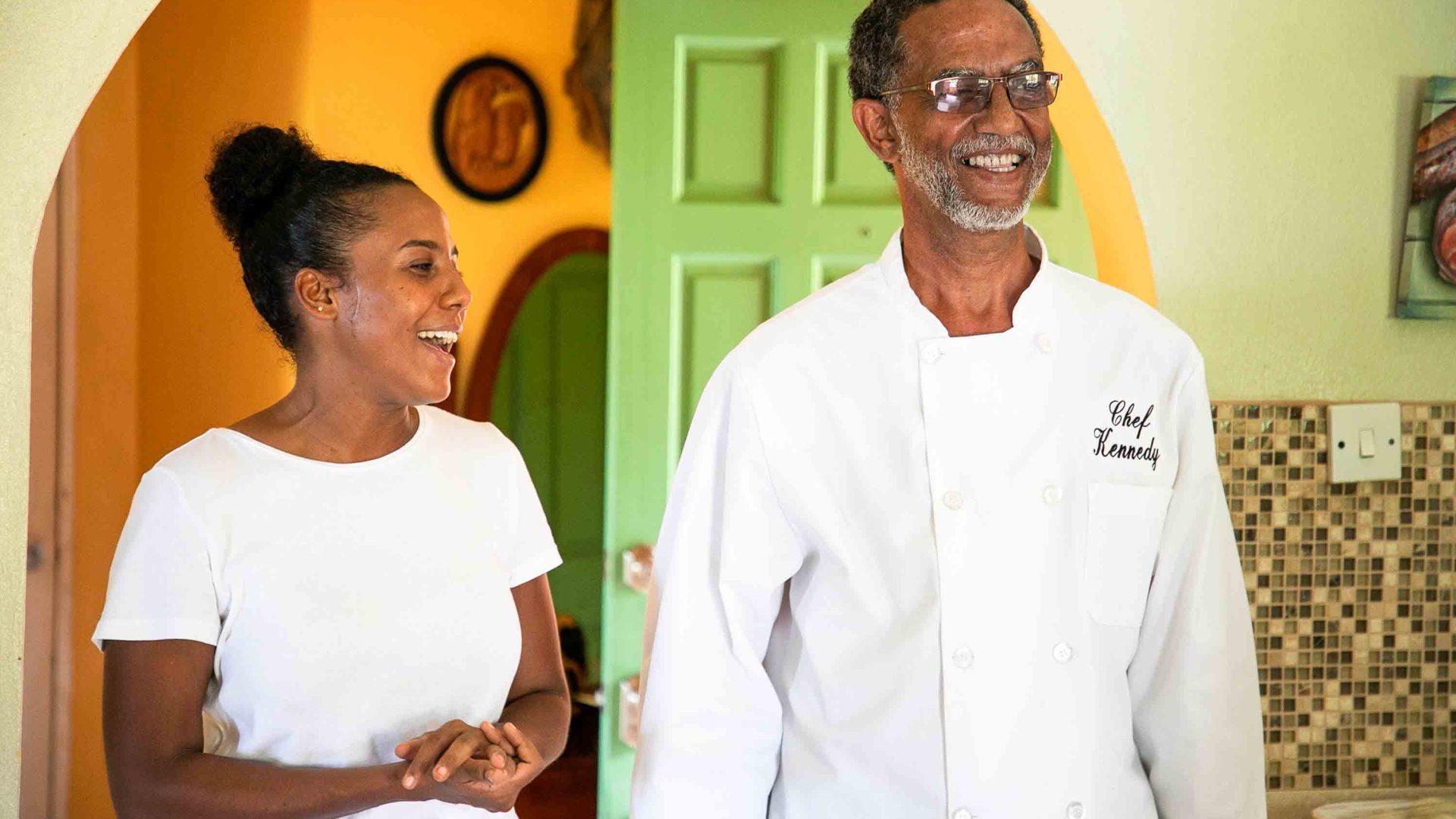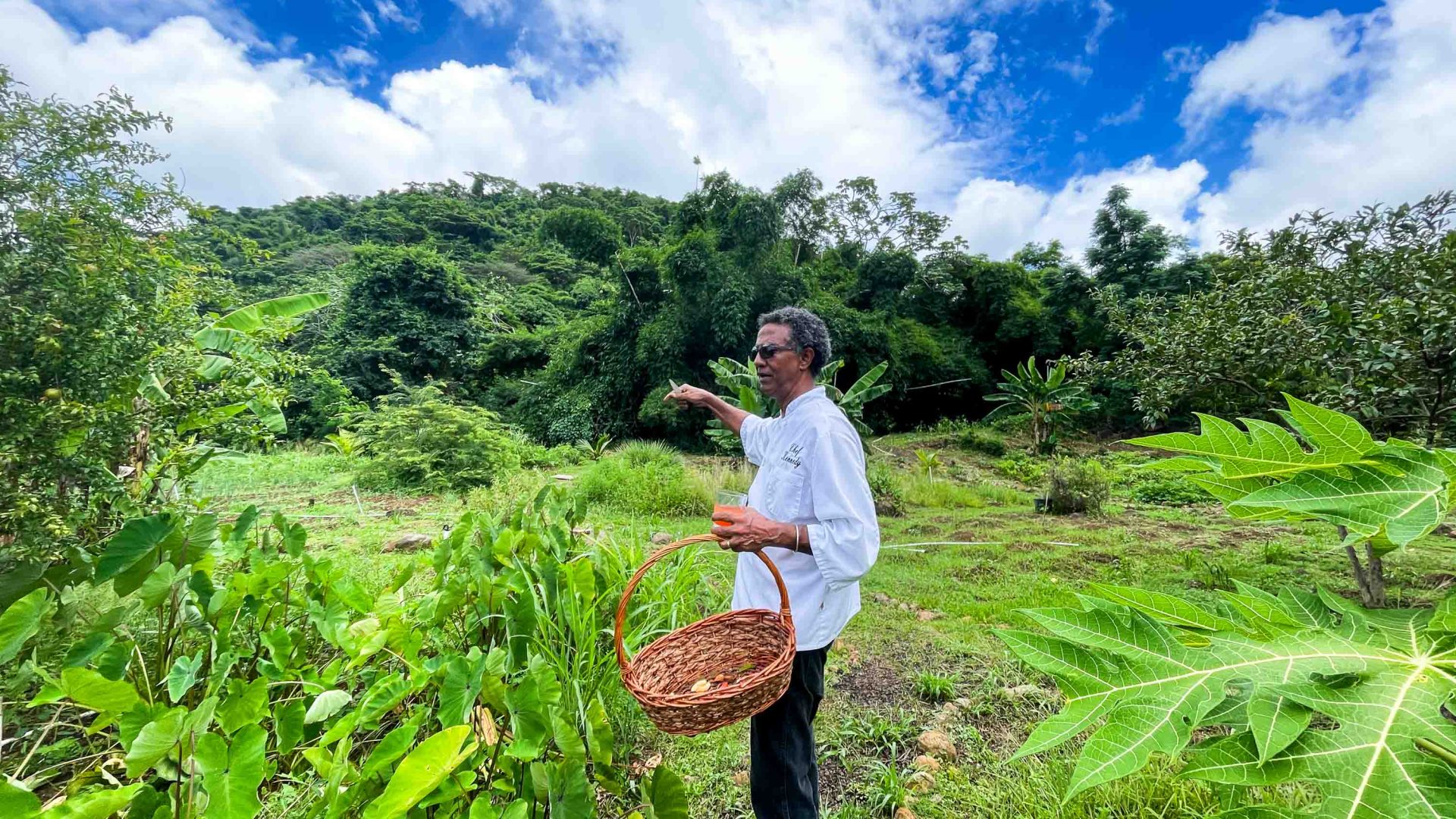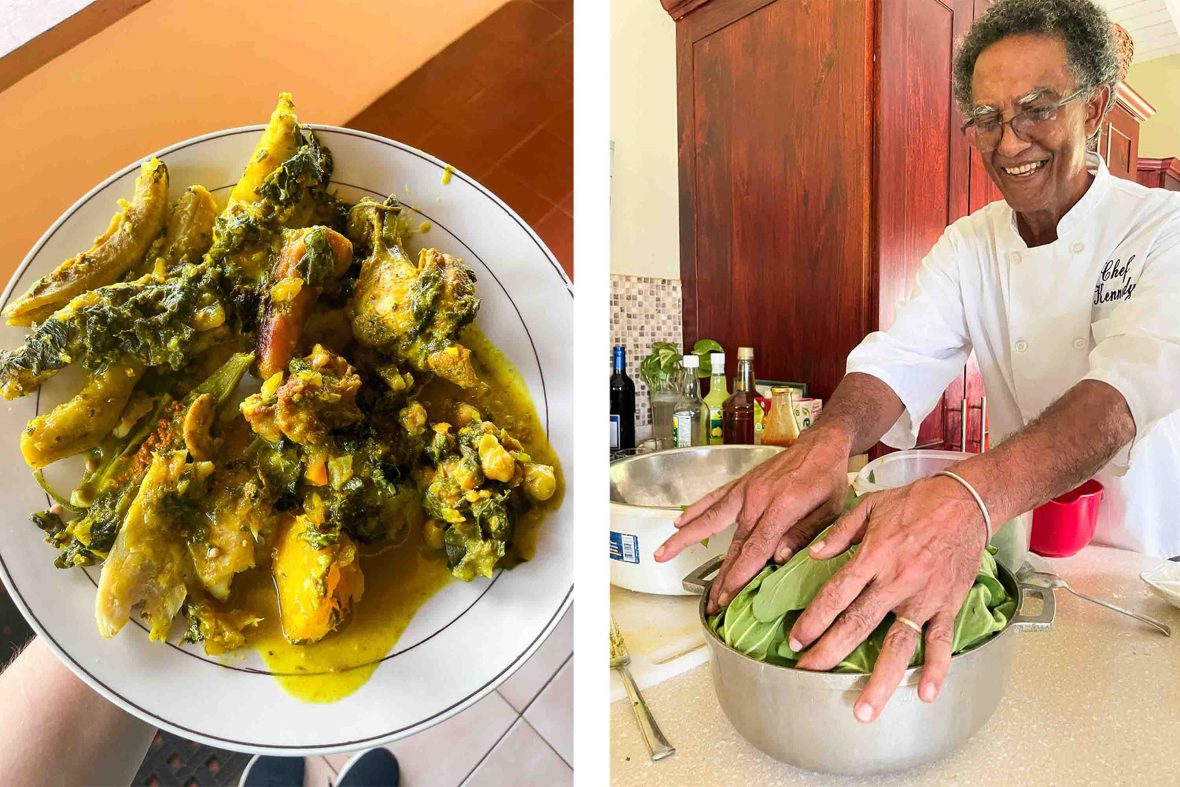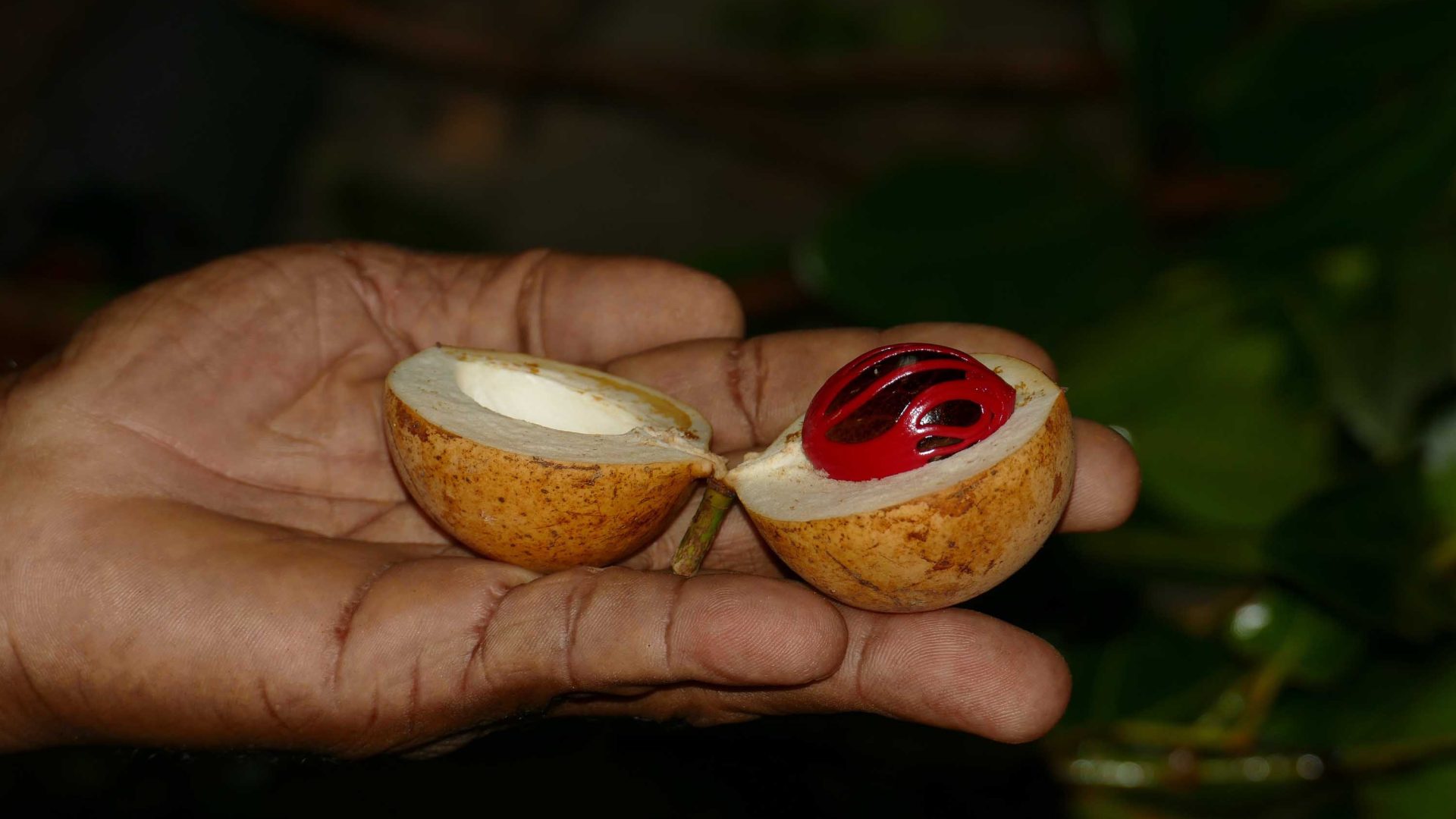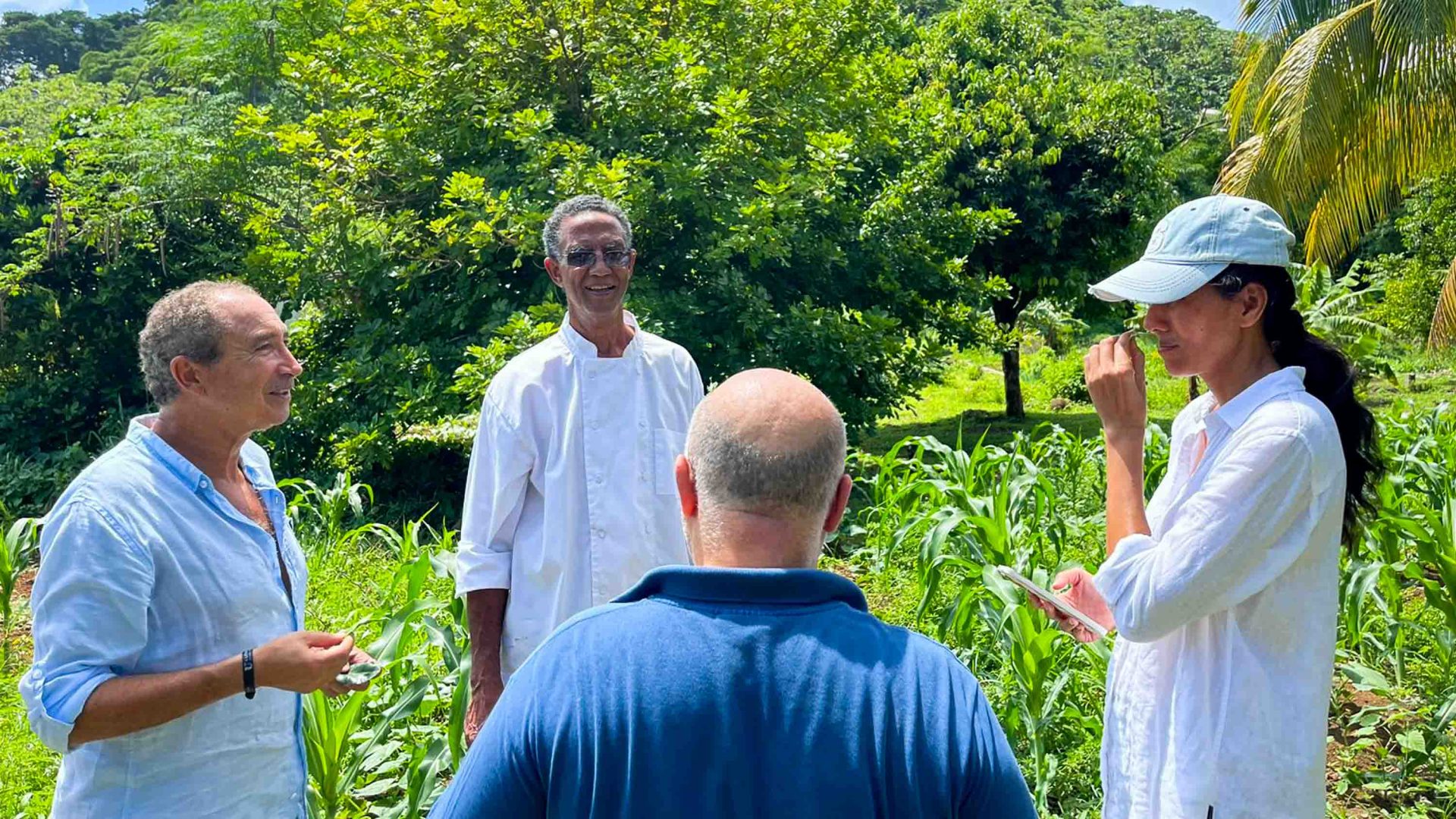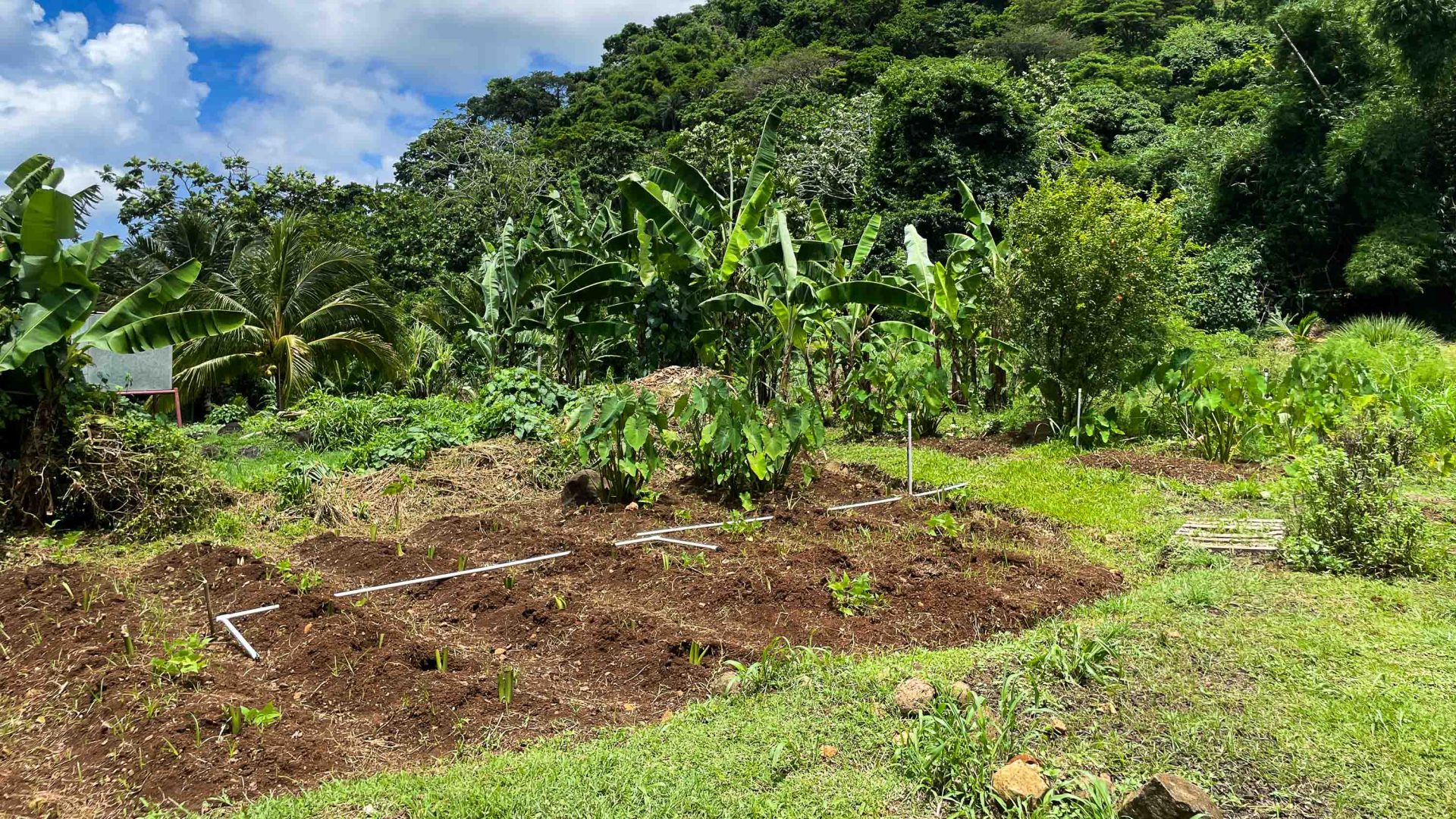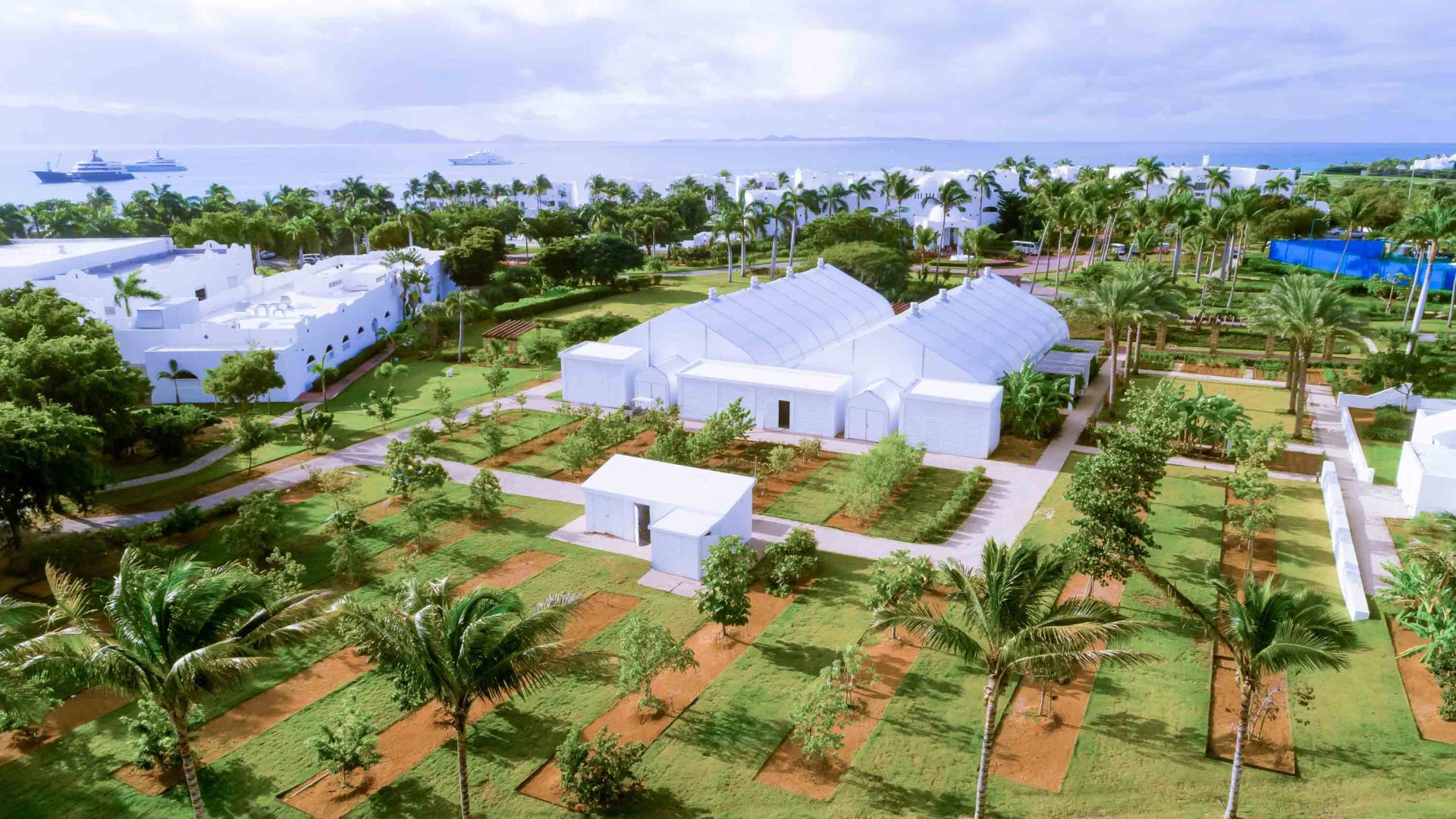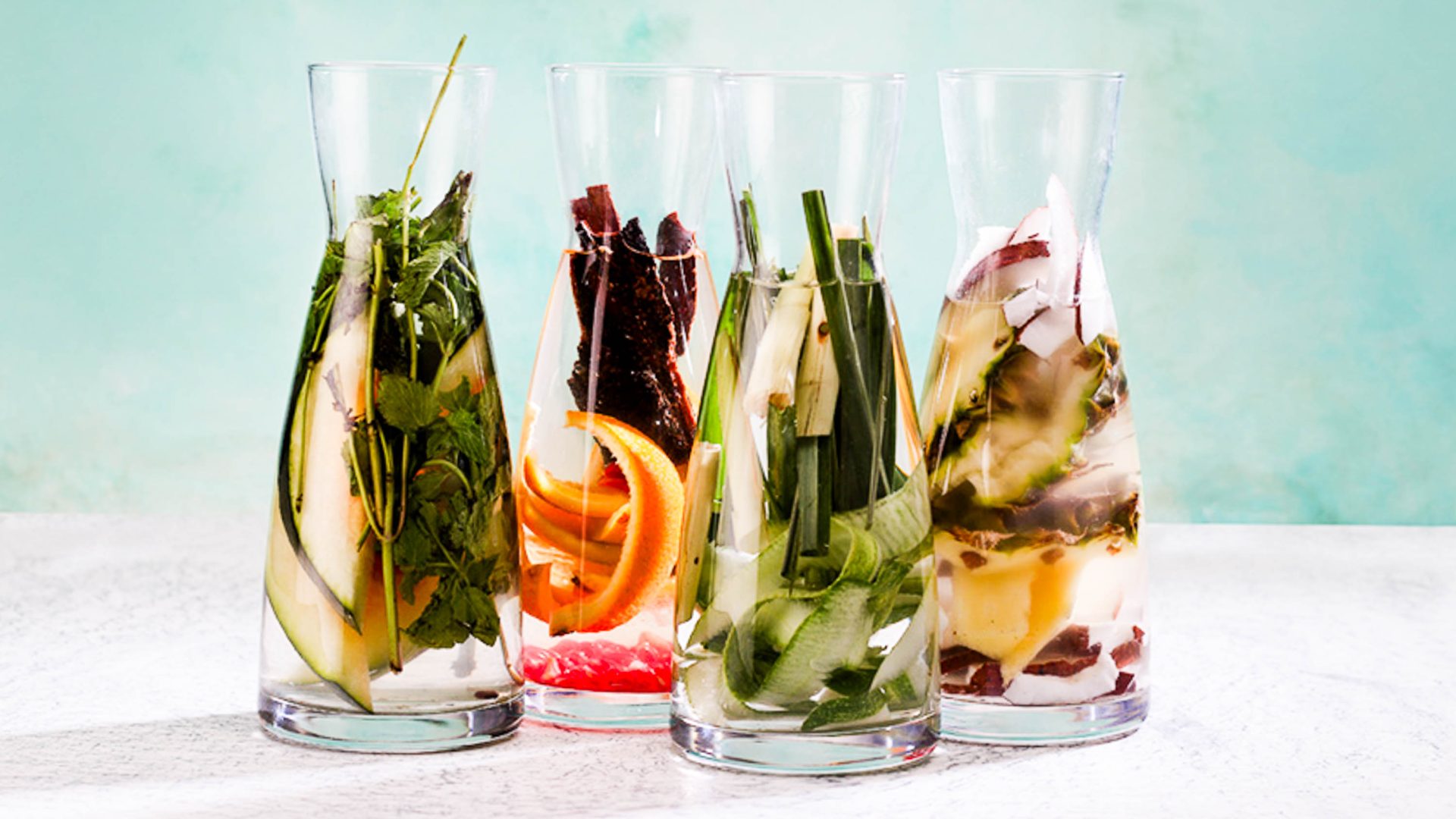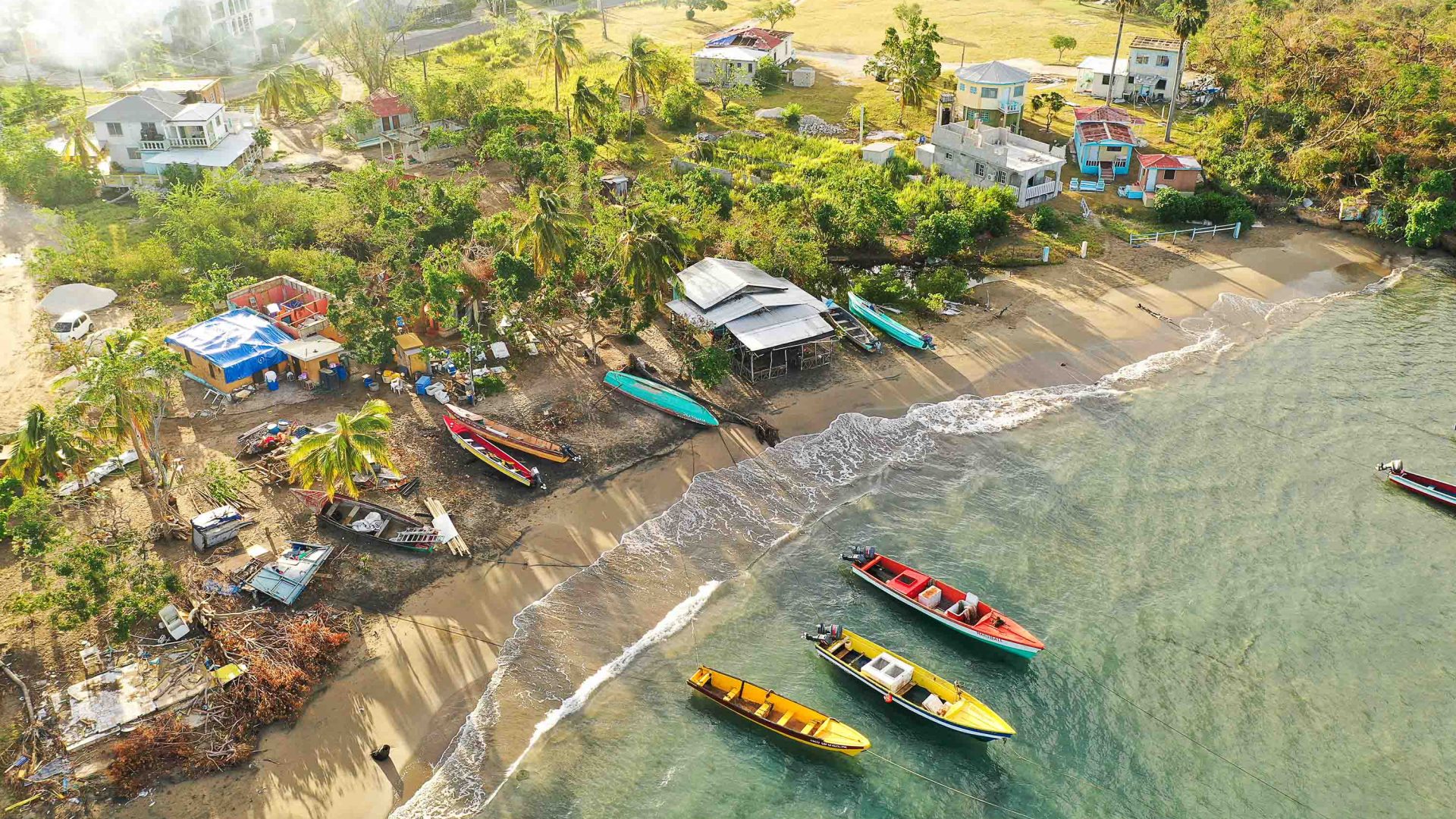As part of the experience, we’ve just prepared an oil-down, Grenada’s national dish, a hearty stew made of layers of vegetables and salted meat and boiled on a fire. Of the 11 ingredients needed to make the oil-down, seven come from Roberts’ garden. All, save for the meats—chicken, pork and fish—which he buys locally.
Atroll in the garden reveals those ingredients in the wild: Broad-leaf callaloo, breadfruit, green bananas, and golden, plump seasoning peppers. Immersed in this paradise of tall avocado trees, with spice shrubs up to your knees and palm fronds humming in the breeze, it’s easy to forget the hurricane could have turned the land into a molehill—if the land had been weeded as Roberts had wanted.
“It’s funny, because I’d always tell our gardener Mr John to cut down bushes and weeds, and then Beryl came,” Roberts tells me. “And because he wasn’t really weeding the beds, the soil kept its strength. It protected a lot of our land and it reduced the loss.”
It was at the time of the hurricane that he and his family realized their experience could be useful for other Grenadian farmers facing the same challenges in the wake of frequent and unexpected climate events.
